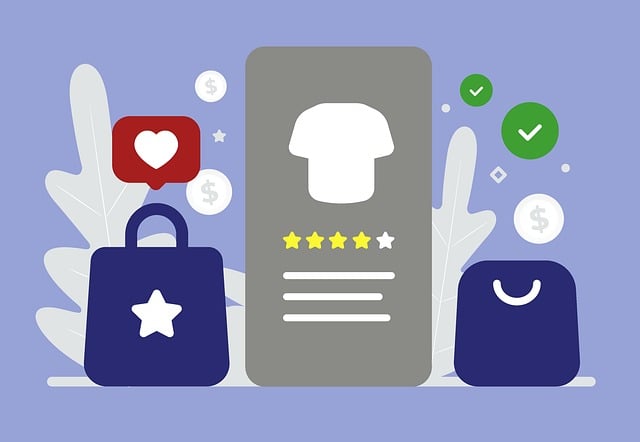E-commerce chatbots are revolutionizing online shopping by acting as digital in-store associates, offering instant support, detailed product information, and personalized interactions around the clock. These AI-driven tools enhance the shopping experience for consumers who seek immediate help, boosting customer satisfaction while simultaneously optimizing operational efficiency through autonomous handling of routine queries. Advanced natural language processing allows chatbots to guide customers seamlessly from product discovery to finalizing purchases, managing order changes post-purchase, and providing support. They personalize the shopping journey by leveraging customer data, leading to higher conversion rates and fostering loyalty. For businesses, integrating a sophisticated e-commerce chatbot means offering an efficient, engaging, and cohesive online shopping experience across all platforms, which is essential for staying competitive in the market. These chatbots are not just about answering questions; they proactively manage inventory, suggest alternatives or complementary products, and utilize machine learning to refine their interactions, becoming more attuned to user preferences over time. This level of personalization and efficiency positions businesses as innovative and customer-centric, offering a significant advantage in the e-commerce space.
In the rapidly evolving landscape of online retail, e-commerce chatbots have emerged as pivotal tools for enhancing customer engagement and streamlining shopping experiences. As businesses strive to deliver personalized and seamless interactions, understanding the critical features that define an effective e-commerce chatbot becomes paramount. This article delves into the multifaceted role of these AI-driven assistants, examining key attributes such as sophisticated natural language processing, deep customer data integration, and multi-channel capabilities. Additionally, we explore advanced functionalities like predictive suggestions, visual search, and inventory management that elevate user experiences. Security, compliance, and data privacy are also critical considerations to ensure consumer trust and adherence to regulations like GDPR and CCPA. Lastly, the importance of scalability and maintenance for long-term success with an e-commerce chatbot is highlighted, ensuring your business stays ahead in the competitive digital marketplace.
- Understanding the Role of E-Commerce Chatbots in Modern Retail Strategies
- Key Features to Evaluate in an Effective E-Commerce Chatbot Solution
- – Natural Language Processing (NLP) Capabilities
- – Personalization and Customer Data Integration
- – Multi-Channel Integration and Reach
Understanding the Role of E-Commerce Chatbots in Modern Retail Strategies

E-commerce chatbots are becoming an integral component of modern retail strategies, serving as the digital equivalent of in-store associates. These intelligent systems facilitate seamless customer interactions by providing instant assistance, product information, and personalized shopping experiences. They operate 24/7, ensuring that queries are addressed at any time, which is particularly beneficial for online shoppers who expect immediate responses to their questions. The integration of e-commerce chatbots not only enhances customer satisfaction but also streamlines operations by automating routine inquiries and freeing up human resources for more complex tasks.
Moreover, e-commerce chatbots are equipped with advanced natural language processing capabilities that allow them to understand and process a wide array of customer requests accurately. They can guide shoppers through the sales funnel, from initial product discovery to checkout, by offering recommendations, dealing with order modifications, and even handling post-purchase support. The data collected by these chatbots can be analyzed to further tailor the shopping experience to individual customer preferences, thereby increasing conversion rates and fostering customer loyalty. Retailers that leverage e-commerce chatbots effectively stand to gain a competitive edge in the marketplace by providing a shopping experience that is both efficient and engaging.
Key Features to Evaluate in an Effective E-Commerce Chatbot Solution

When integrating an e-commerce chatbot into your online store, it’s crucial to assess several key features that can significantly enhance customer engagement and streamline sales processes. An effective e-commerce chatbot should offer seamless integration with your existing e-commerce platform, ensuring a unified experience for users who seek assistance during their shopping journey. The chatbot must be capable of understanding and processing natural language queries, allowing customers to interact in a conversational manner, thereby increasing the likelihood of satisfying their needs without the need for human intervention. Advanced natural language processing (NLP) capabilities enable the chatbot to interpret complex queries related to product availability, prices, shipping options, return policies, and more, providing accurate and timely responses that can guide customers to the checkout page or assist in post-purchase queries.
Furthermore, a robust e-commerce chatbot solution should be equipped with dynamic inventory management integration. This feature is pivotal for real-time stock updates, order processing, and customer notifications regarding their orders’ status. The chatbot can also proactively suggest alternative products in case of stock shortages or recommend additional items to complete a set, enhancing the shopping experience and potentially increasing the average order value. Additionally, the chatbot should support personalized shopping experiences by leveraging user data to offer product recommendations based on past purchases, browsing history, or cart contents. This personalization not only improves customer satisfaction but also contributes to higher conversion rates and repeat business. By carefully evaluating these e-commerce chatbot features, businesses can select a solution that effectively supports their sales strategies and customer service goals.
– Natural Language Processing (NLP) Capabilities

When integrating a chatbot into your ecommerce platform, prioritizing robust Natural Language Processing (NLP) capabilities is paramount. A sophisticated NLP system enables the chatbot to understand and process human language with a high degree of accuracy. This allows for seamless interactions where customers can express their queries or commands in natural, conversational tones. The chatbot should be adept at interpreting various intents behind customer inquiries, from product questions to order tracking and beyond. Such NLP proficiency not only enhances user experience but also streamlines customer service operations by reducing the need for manual intervention. Moreover, an effective ecommerce chatbot is equipped with contextual understanding, enabling it to maintain coherent conversations over multiple interactions. This continuity fosters a deeper connection with customers and can lead to increased satisfaction and loyalty.
In addition to understanding language, an advanced NLP-driven ecommerce chatbot should be capable of learning from each interaction. Machine learning algorithms can analyze past conversations to improve response accuracy and relevance. Over time, the chatbot becomes more attuned to user preferences, common issues, and frequently asked questions, thus providing personalized support that aligns with your customers’ unique needs. This proactive approach to customer service can significantly boost sales by guiding users through the purchasing process with precision and care. Furthermore, integrating an NLP-powered chatbot into your ecommerce site is a strategic move that can differentiate your brand from competitors by offering a cutting-edge, interactive, and intelligent customer service experience.
– Personalization and Customer Data Integration

When integrating an ecommerce chatbot into your customer service strategy, personalization and customer data integration are pivotal features that can elevate the user experience to new heights. A well-designed chatbot should leverage the data collected from customer interactions to deliver tailored experiences. This means understanding past purchases, browsing behavior, and even preferences expressed through customer feedback. By harnessing this information, the ecommerce chatbot can provide personalized recommendations and support, guiding customers towards products that suit their unique needs and styles. This not only enhances customer satisfaction but also drives sales by offering a more relevant and engaging shopping experience.
Moreover, the seamless integration of customer data within the chatbot’s framework allows for real-time assistance and proactive service. The chatbot can access a customer’s order history or track an ongoing delivery, providing information at their fingertips. This level of personalization, powered by robust data management, ensures that each interaction is informed, relevant, and efficient, ultimately fostering a stronger relationship between the customer and the ecommerce platform. Integrating these features into your chatbot can significantly improve customer engagement and loyalty, setting your business apart in the competitive ecommerce landscape.
– Multi-Channel Integration and Reach

When evaluating a chatbot for your business, particularly in the context of ecommerce, one of the most critical features to assess is its ability to provide seamless multi-channel integration and reach. An ecommerce chatbot that operates across various platforms not only enhances customer experience but also ensures that no query or transaction goes unaddressed, regardless of where the consumer engages with your brand. This omnipresence can be achieved through integration with social media channels, messaging apps, email, and even voice-assisted devices like smart speakers. Such a chatbot acts as a centralized support system that customers can access on their preferred communication channels, thereby increasing the likelihood of conversion and customer retention. Additionally, a well-integrated ecommerce chatbot can collect data from different touchpoints to provide personalized shopping experiences, recommend products based on past interactions, and even predict future needs by learning from user behavior across these various channels. This not only streamlines operations but also fosters a more engaging and efficient shopping journey for the customer.
In conclusion, integrating an e-commerce chatbot into your retail strategy can significantly enhance customer engagement and satisfaction. When selecting a chatbot solution, prioritize advanced Natural Language Processing (NLP) capabilities to ensure the bot can understand and respond to customer inquiries effectively. Personalization and seamless integration of customer data are crucial for delivering tailored experiences that cater to individual preferences. Additionally, a robust multi-channel presence ensures your chatbot can assist customers across various platforms, fostering a cohesive shopping experience. By focusing on these key features, retailers can leverage the power of e-commerce chatbots to drive sales, improve customer service, and stay competitive in today’s dynamic marketplace.
